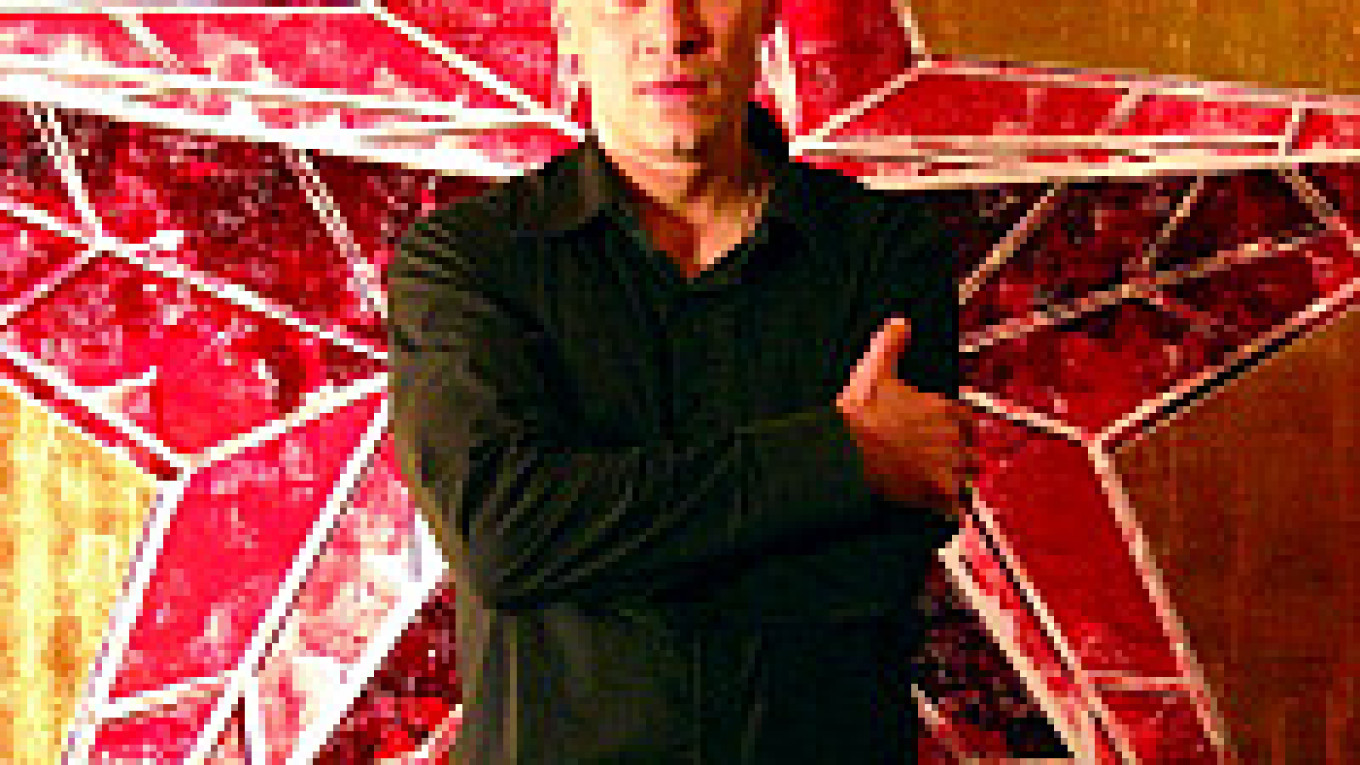In the other categories, Diana Machulina was named young artist of the year for "Labor," a photo-realistic painting of a Communist party presidium. PG Group took home the media-art prize for "Mounting Mobile Agitation," which comically imagines a Chinese invasion of Russia. They will receive a three-month "creative business trip" to Florence and 10,000 euros, respectively.
Before announcing the winner of the main award, philosopher Boris Groys pointed out that "since the political orientation of all three nominees are so clear, the decision will be necessarily as political as it is aesthetic." Unlike Gutov's Communism and Orlov's anti-Communism, however, Belyaev's work is a far cry from what normally appears in political Russian art.
Belyaev is a follower of ultranationalist philosopher Alexander Dugin and a representative of the Eurasian Union of Youth, whose catechism features phrases such as "Strength begets strength" and "Our goal is absolute power!" The two nominated pieces featured a detail from a Stalinist Gothic monument and a crowd listening to a speech by Stalin himself, rendered in Belyaev's "grand Statist style."
Despite performances from international stars such as the Chapman Brothers and Marina Abramovich and prize founder Shalva Breus' insistence that it be judged solely on artistic grounds, the award had already essentially turned into a referendum on Belyaev's views. His surprise nomination last month sparked public outcry and a furious critical discussion on art web site OpenSpace, in which Kandinsky jury member Andrei Erofeev declared, "They should give him the Leni Riefenshtal prize."
Others took a more level-headed approach to Belyaev's intrusion into the shortlist. Receiving her award earlier in the evening, Machulina pointed out that "for some reason everyone got scared of 'fascism' at the exhibition, but nobody's worried about it in real life. There's no point in focusing on Gintovt ?€” we should focus on fascism." She went on to hope that "there'll be all the more political art, because if artists won't tackle politics, politics'll tackle them and everyone else."
Nonetheless, the controversy spilled well over into the ceremony. Fellow judge Andrei Borovitsky meekly admitted that the jury could not reach a unanimous decision and had to resort to a vote. Outside, members of left-wing artistic and political groups picketed, holding a banner covered in swastikas and chanting, "Shame on Kandinsky!"
When Belyaev began his acceptance speech to a strange mixture of rapt cheering, mild applause and stunned silence, he was immediately interrupted by 2007 laureate Anatoly Osmolovsky's screams of "Disgrace! Disgrace!" from the back of the hall, which led to general confusion as many of the audience made for the door. But the laureate had the last words ?€“ "Russia is eternal!" ?€“ and left with the 40,000 euro prize.
A Message from The Moscow Times:
Dear readers,
We are facing unprecedented challenges. Russia's Prosecutor General's Office has designated The Moscow Times as an "undesirable" organization, criminalizing our work and putting our staff at risk of prosecution. This follows our earlier unjust labeling as a "foreign agent."
These actions are direct attempts to silence independent journalism in Russia. The authorities claim our work "discredits the decisions of the Russian leadership." We see things differently: we strive to provide accurate, unbiased reporting on Russia.
We, the journalists of The Moscow Times, refuse to be silenced. But to continue our work, we need your help.
Your support, no matter how small, makes a world of difference. If you can, please support us monthly starting from just $2. It's quick to set up, and every contribution makes a significant impact.
By supporting The Moscow Times, you're defending open, independent journalism in the face of repression. Thank you for standing with us.
Remind me later.


